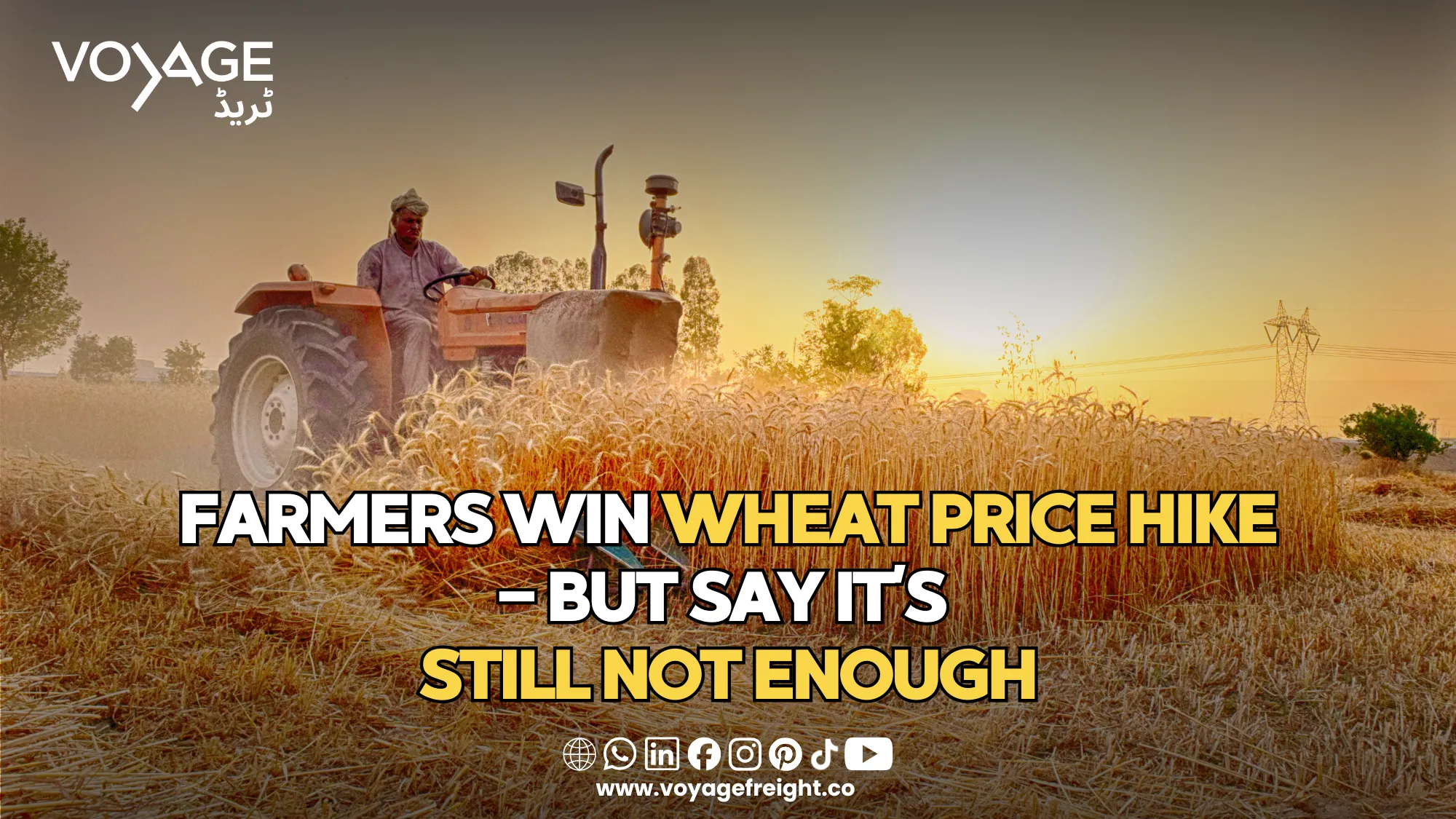
Farmers Win Wheat Price Hike — But Say It’s Still Not Enough
Pakistan’s farmers have finally won a small victory — but they’re not ready to celebrate just yet.
After weeks of pressure from farmer associations, the government has announced a raise in the minimum support price (MSP) of wheat to Rs 3,500 per maund. The decision came after strong protests led by the Pakistan Kissan Rabita Committee (PKRC), a major voice for farmers across the country.
While the hike brings some relief, farmers argue that it still doesn’t match the rising cost of cultivation. The PKRC has called the increase “a step in the right direction, but far from enough.”
The Demand: Rs 4,000 per Maund
The PKRC insists that to truly cover production costs and ensure fair profits, the government should fix the support price at Rs 4,000 per maund.
Over the past year, input costs have skyrocketed — everything from fertiliser and diesel to seeds and labour has become significantly more expensive. Farmers say that with these rising costs, the new MSP barely allows them to break even.
“This is not just about price; it’s about survival,” said PKRC representatives, emphasizing that without proper compensation, many small farmers will be forced to reduce cultivation or abandon wheat altogether.
Impact of Low Prices and Policy Challenges
According to the PKRC, previous government policies — influenced by IMF recommendations — kept wheat prices artificially low. This discouraged farmers, leading to a 9% drop in wheat cultivation this year.
The committee criticized what it called an “anti-farmer policy environment”, claiming that international pressure and local mismanagement have harmed domestic agriculture and food security.
Farmers argue that when production drops, Pakistan becomes more dependent on costly wheat imports, increasing the burden on the national economy.
Positive Step: Movement Restrictions Lifted
In a move welcomed by farmer groups, the government has lifted restrictions on inter-provincial wheat movement. This decision will help ensure smoother supply chains, reduce hoarding, and allow farmers to sell their produce where prices are more competitive.
By allowing the free movement of wheat across provinces, authorities aim to reduce artificial shortages and market manipulation that often-hurt farmers’ profits.
The Bigger Picture: A Temporary Win
While the price increase is a short-term victory, farmer organizations remain cautious. The PKRC described it as a “temporary win” — meaningful, but not transformative.
They argue that without broader agricultural reforms, Pakistan’s farming sector will continue to struggle. Rising input costs, water scarcity, lack of subsidies, and limited access to markets are persistent challenges that must be addressed for long-term sustainability.
“If the government truly wants to strengthen food security,” said the PKRC, “it must invest in farmers — not just in prices, but in policies.”
The Road Ahead
The wheat price hike signals a recognition by policymakers that farmers’ concerns can no longer be ignored. Yet, it also highlights the gap between short-term policy fixes and the structural reforms needed to support Pakistan’s agricultural backbone.
Until fair pricing, efficient procurement systems, and affordable farming inputs become standard, Pakistan’s wheat growers will continue to fight for their rightful share.
How Voyage Agri Trade Services Supports Farmers in Selling Wheat
In times of market uncertainty, Voyage Agri Trade Services provides farmers with tools and platforms to sell wheat smarter, access real-time market data, and connect with buyers across Pakistan.
Here’s how Voyage empowers wheat farmers:
Direct Market Access
Voyage connects farmers directly with reliable buyers — including flour mills, exporters, and industrial processors — cutting out middlemen and ensuring fair, transparent pricing.
Smart Selling & Logistics
Through its digital trading system and logistics network, Voyage helps farmers store, transport, and trade wheat efficiently. Farmers can sell to the highest bidder, track their shipments, and avoid exploitation in the market.
Better Profits Through Bulk Trade
Voyage aggregates wheat from multiple farmers to enable bulk trading, giving farmers stronger negotiation power and access to premium buyers who pay higher rates.
Market Insights & Advisory
Voyage provides farmers with valuable insights into market trends, wheat demand, and export opportunities, helping them make informed decisions and maximize profits.
A Step Toward a Sustainable Future
As Pakistan’s agriculture evolves, Voyage Agri Trade Services remains committed to empowering farmers through technology, transparency, and fair trade practices.
By helping farmers sell wheat efficiently and profitably, Voyage contributes to a more sustainable, self-reliant agricultural economy — where every farmer gets the value they deserve for their hard work.
Source: Dawn

